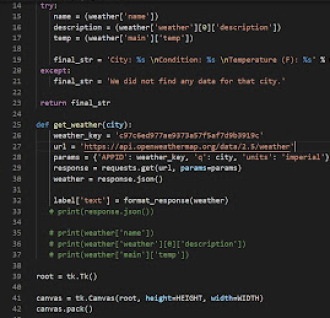









Code & Programme Editors
Streamlined coding with support for C++, Python, and visual scripting, enabling rapid development and customization

Real-Time Testing and Instant Commits
Apex Engine's code editors are designed to streamline development, offering both traditional scripting and visual editing options to suit all workflows. With built-in AI assist, developers can write, debug, and refine code faster, automating repetitive tasks and offering intelligent suggestions.
The visual editor provides a more intuitive, drag-and-drop approach, making it easy for teams of varying skill levels to contribute to the project. Whether you're scripting complex game logic or designing visual elements, the code editors provide the flexibility developers need to create efficiently.
What sets Apex Engine’s code editors apart is the ability to test and commit changes in real-time. Instead of waiting for nightly builds, developers can run live tests and push updates instantly, speeding up iterations, enabling seamless team collaboration. This live integration ensures code and script changes are immediately reflected, reducing downtime and boosting productivity.
Core Logic & Scripting Editors
Script Editor
Apex Engine’s Script Editor enables developers to write game logic using languages like Python, Lua, or C++. It powers the core gameplay mechanics, enabling fine control over game behaviors and interactions.
Visual Script Editor
Ideal for non-programmers and rapid prototyping, the VSE allows developers to design logic visually using node-based scripting. This drag-and-drop interface simplifies complex logic creation and speeds up development
Game Logic Editor
The GLE in Apex Engine allows developers to design the core rules, objectives, and systems that define the gameplay experience. It provides a centralized interface for building complex mechanics and interactions.
States System Editor
The States Editor bridges technical art with scripting, allowing developers to create functions, triggers, and dynamic interactions. It connects different game states, animations, and events for complex world behaviors.
Shader Editor
Apex Engine’s Shader Editor enables the creation and customization of shaders, controlling the appearance of surfaces, lighting, and materials; essential for achieving visual fidelity & real-time rendering optimizations.
Animation Editor
The Animation Editor lets developers control and blend animations for smooth transitions and realistic character and object movements, integrating seamlessly with the engine's scripting system for interactive animations.
Area Editor
The Area Editor is used to design, manage, and edit zones or areas within the game world, ensuring seamless transitions between environments. It is essential for creating open-world or segmented gamefied zones.
UI/GUI Editor
The UI/GUI Editor enables the creation and customization of user interfaces and HUD elements. Developers can design interactive menus, on-screen prompts, and game interfaces using XML, QML, or other markup languages.
Physics Editor
This editor lets developers define physics interactions like collisions, forces, and object movement, ensuring realistic physical behaviors in the game world. It is crucial for fine-tuning object dynamics.
Simulation Editor
Apex Engine’s Simulation Editor allows developers to simulate real-world physics behaviors, including gravity and collisions. This tool helps refine how objects interact with their environment in both real-time and pre-scripted scenarios.
AI Editor
The AI Editor helps developers script artificial intelligence behaviors, pathfinding, and decision-making systems for NPCs and game entities. It provides tools for creating intelligent, reactive game environments.
Audio Editor
Apex Engine’s Audio Editor allows developers to manage in-game sounds, background music, and audio triggers. It supports both real-time and event-based audio implementation, enhancing immersion through dynamic soundscapes.
Collaboration & Plugin Editors
Plug-in Editor
The Plug-in Editor gives developers the flexibility to create or integrate custom tools and features into Apex Engine. It enables expanding the engine’s capabilities by adding third-party integrations or building proprietary tools.
Network/Server Code Editor
This editor is essential for multiplayer games, enabling developers to script server-side logic and handle networking functionalities. It allows seamless integration of multiplayer, including MMO and real-time player interactions.
Team Manager
The Team Manager allows companies and development teams to organize and manage member roles, permissions, and collaboration. It helps streamline workflows and ensures effective team coordination on large projects.
Account Manager
Apex Engine’s Account Manager handles the management of player and client accounts, controlling user profiles, access permissions, and progress. It is essential for games with multiplayer, MMO, or client-based components.







